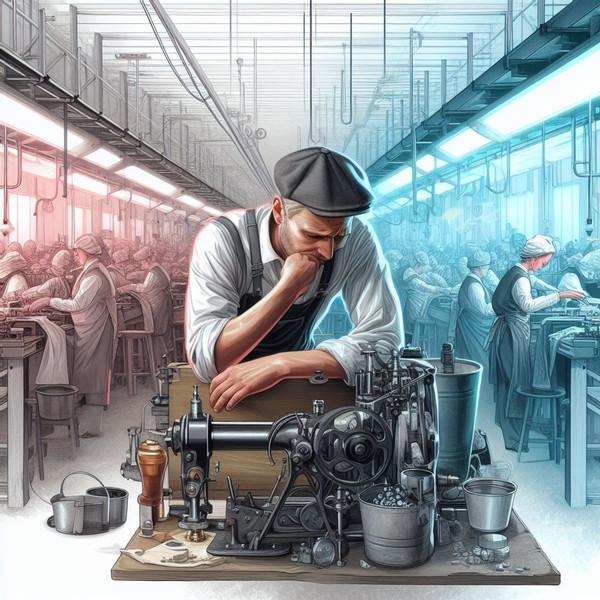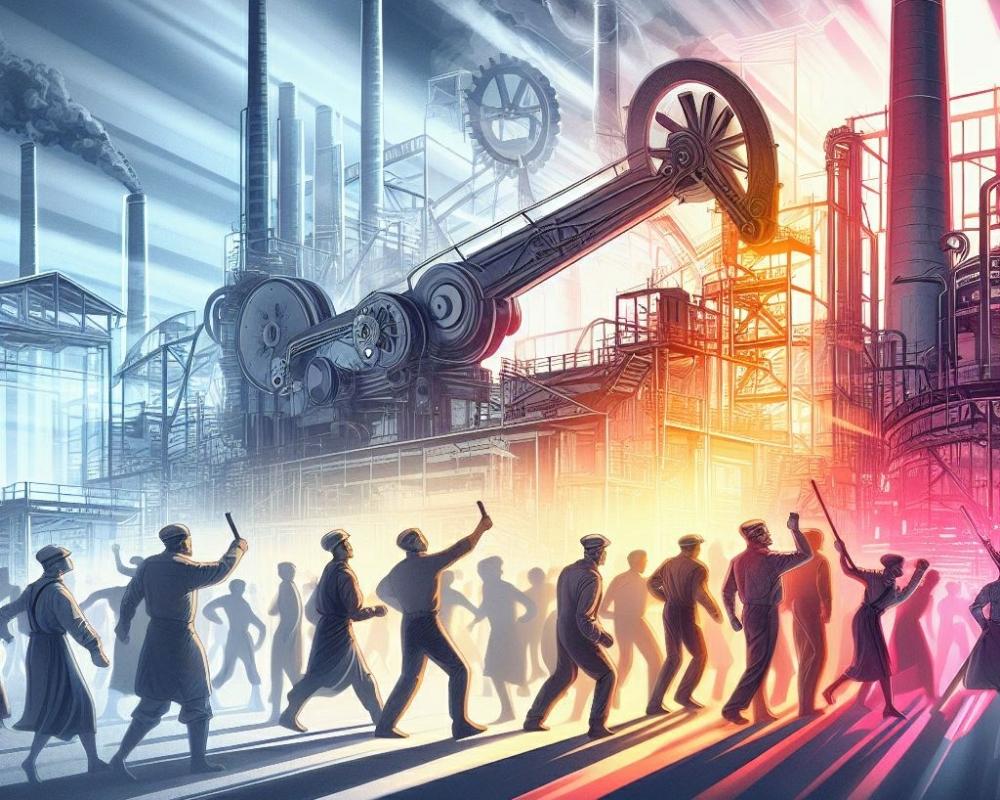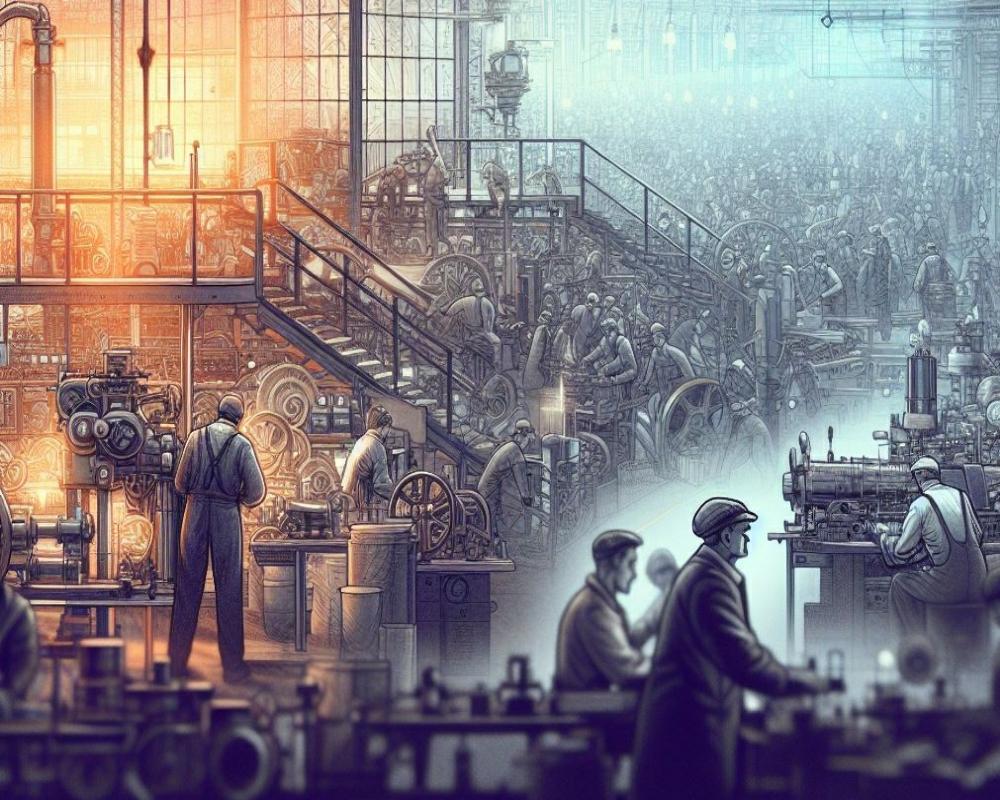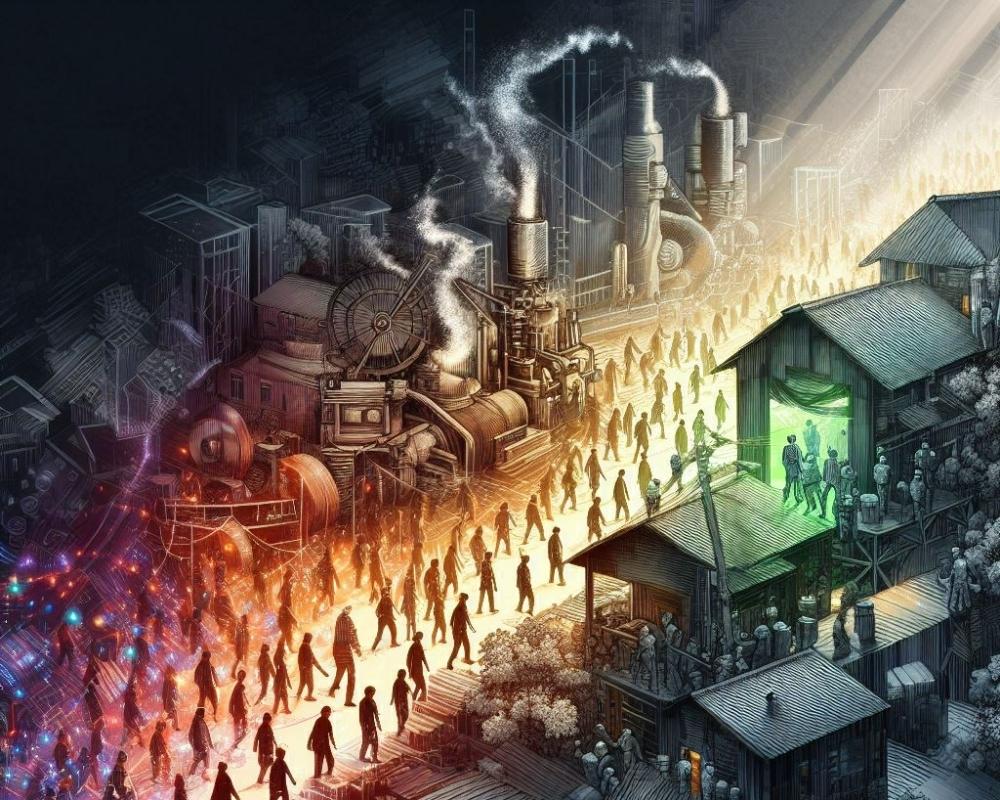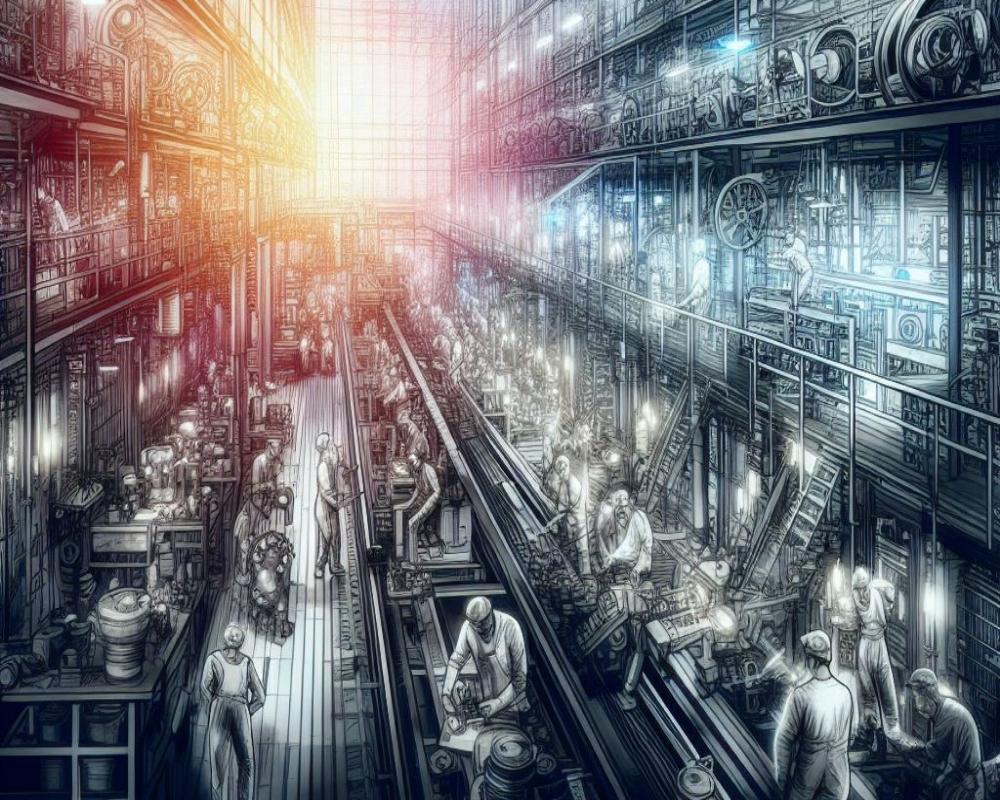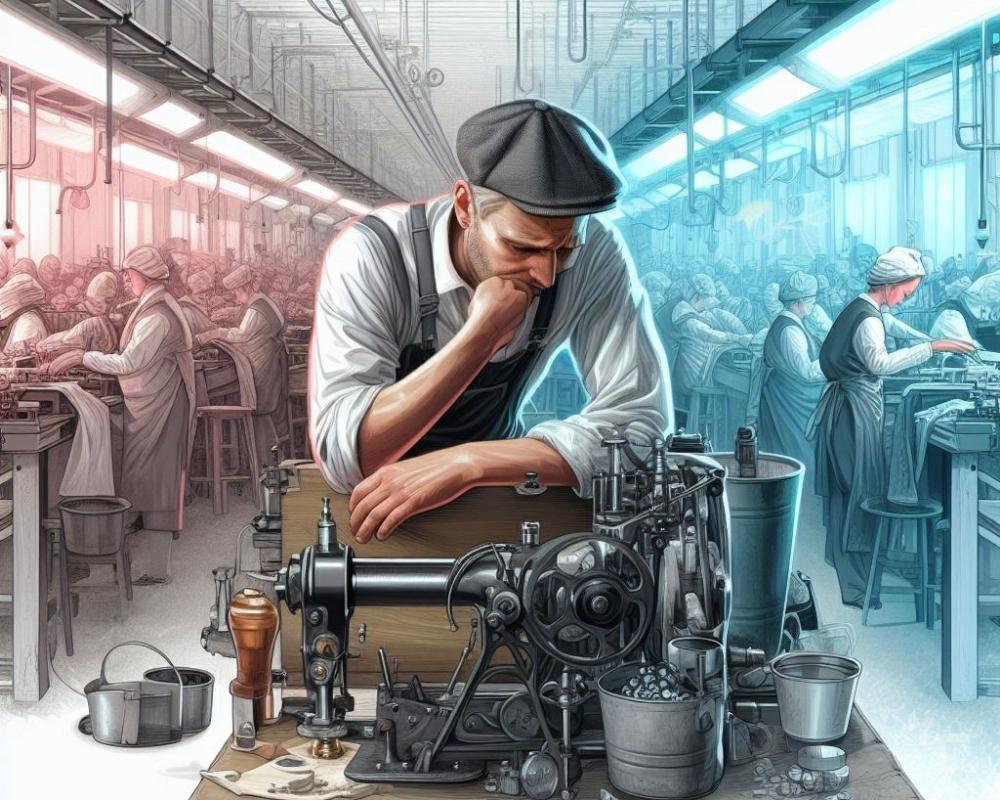How the Evolution of Technology Impacted Jobs of the Past
Curated from: computingnirvana.com
Ideas, facts & insights covering these topics:
6 ideas
·1.49K reads
12
Explore the World's Best Ideas
Join today and uncover 100+ curated journeys from 50+ topics. Unlock access to our mobile app with extensive features.
Rise of Luddites:
In the early 1800s the town of Nottinghamshire found itself at the epicenter of a technological revolution that would forever change the textile industry. Steam-powered mechanical frames had arrived, threatening to render the labor of skilled artisans obsolete.
Faced with the impending loss of their livelihoods, a group of indigent laborers banded together in secret societies, rallying under the banner of a fictional character named Ned Ludd—a figure reminiscent of Robin Hood but updated for the industrial age. These defiant individuals proudly donned the title of “Luddites.”
15
353 reads
Shift in the Job Market
Prior to the invention of steam powered machines, many businesses relied on experienced craftsmen and artisans who made products by hand. Though the machines made manual skill less necessary displaced some skilled artisans initially, however they also introduced many new jobs in the market. Factories required workers to operate and maintain these machines, leading to a surge in demand for factory workers, machine operators, and mechanics thus factory work grew more common as a result.
14
263 reads
Urbanization and Migration:
The rise of factories and industrial centers led to individuals moving from rural regions to urban centers in pursuit of employment opportunities. The influx of people reshaped demographics and created a need for urban infrastructure and services including sewage, water supply, public transit, and healthcare. Thus, more staff was hired to facilitate this growing demand.
15
234 reads
Expansion of White-Collar Jobs
In order to support the growing demand for machines, sectors including steel production, coal mining, and transportation expanded, which saw significant increase in White-Collar jobs in fields such as logistics, infrastructure construction, and mining.
15
222 reads
Changes in Working Conditions
Higher production speeds and efficiency came at the cost of degrading working conditions. Workers were made to work for long hours with poor safety standards. This further led to rise of labor movements and unions emerged to advocate for workers’ rights and improved conditions.
15
218 reads
Follow To Stay Updated With Content Like This !
If you want to read the detailed impact then do check out the article here : How Evolution of technology impacted jobs of the past
If you found this article insightful and would like to stay updated on content like this in future, then please follow our WhatsApp channel.
13
200 reads
IDEAS CURATED BY
I write about: Books 📚 Technology Mental tools 🧠 you can use to understand life 🌱, make decisions & solve problems. Follow & allow your #ideas to flourish 🌺 Click here 👇 to learn More
CURATOR'S NOTE
Remarkable advancements in AI technologies are reshaping industries, automating tasks, and augmenting human capabilities. But before we proceed to examine how technology will impact jobs in the future, let's take a trip back to the 1800s and see how jobs were affected when steam-powered machines were introduced in factories.
“
Similar ideas
7 ideas
The dark history of our obsession with productivity
fastcompany.com
6 ideas
When The Magic Happens
collaborativefund.com
8 ideas
Read & Learn
20x Faster
without
deepstash
with
deepstash
with
deepstash
Personalized microlearning
—
100+ Learning Journeys
—
Access to 200,000+ ideas
—
Access to the mobile app
—
Unlimited idea saving
—
—
Unlimited history
—
—
Unlimited listening to ideas
—
—
Downloading & offline access
—
—
Supercharge your mind with one idea per day
Enter your email and spend 1 minute every day to learn something new.
I agree to receive email updates
